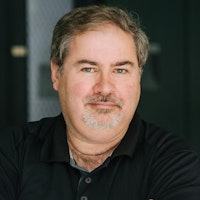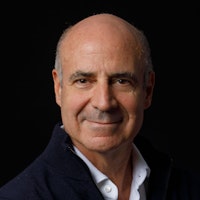
What we say is that criminals are always early tech adopters, and it's true.
Show Notes
We are in a golden age for organized crime and corruption, according to watchdog groups. Technological innovations like cryptocurrency have given criminals new tools for covering their tracks, and allowed them to spread out around the globe. Bad actors have spent decades building tangled webs of enablers and tactics, and they now have more resources and capital than ever to invest in new crime enterprises. The Organized Crime and Corruption Reporting Project has reporters and editors on every continent who put their lives at risk to follow trails of laundered money and trace clues back to the guilty parties. Their reporting uncovers the ways corruption is chipping away at democracy, human rights, and quality of life for regular citizens. The co-founders of the OCCRP, Drew Sullivan and Paul Radu, along with Freezing Order author Bill Browder, joined NPR host and reporter Mary Louise Kelly on stage at the Aspen Ideas Festival, to explain their methods, share their read on the magnitude of the problem, and speculate about the future of organized, globalized crime.
Explore
Related episodes


Any organization, public or private, with any connection to Ukraine, should be exercising extreme technological vigilance, says cybersecurity expert Sandra Joyce, Executive Vice President and Head of Global Intelligence at Mandiant. In addition to the attacks on the ground, Russia could come at Ukraine virtually, with a wide range of targets and tactics and varying levels...


Last year Russia infiltrated the digital networks of federal agencies and many of America’s largest corporations, and last week’s armed insurrection on the US Capitol was fomented through disinformation campaigns on social media.


FBI Director James Comey on terrorism, cybercrime, and hacking into the iPhone of a terrorist.










